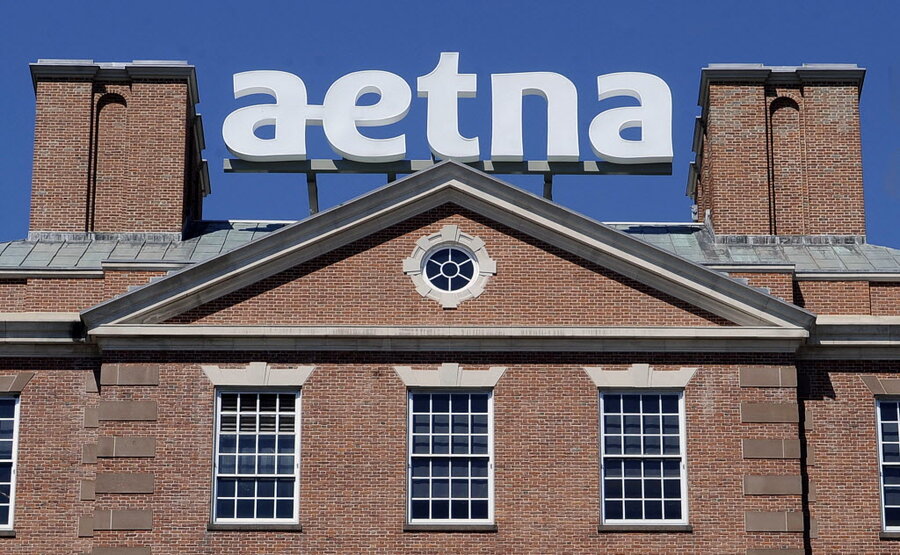Aetna pulls out of exchanges, highlighting a major challenge for Obamacare
Loading...
Aetna, one of the United States’ biggest health insurers, Monday said that it will stop offering health plans through Affordable Care Act (ACA) exchanges in 11 out of the 15 states in which it currently participates in the insurance marketplace. These include Arizona, Florida, and Pennsylvania, among others. Aetna will stay on the exchanges in Delaware, Iowa, Nebraska, and Virginia.
Despite reporting a “landmark year” in its 2015 annual earnings report, the publicly traded company says that it’s losing money on the online marketplaces launched in 2014 to sell health insurance plans to Americans. The exchanges are available in all states to allow people to shop for federally required health coverage. The availability and cost of insurance plans varies by county and by state.
“Following a thorough business review and in light of a second-quarter pretax loss of $200 million and total pretax losses of more than $430 million since January 2014 in our individual products, we have decided to reduce our individual public exchange presence in 2017, which will limit our financial exposure moving forward,” Mark T. Bertolini, Aetna’s chairman and CEO, said in a Monday announcement.
Ana Gupte, an analyst at healthcare investment firm Leerink Partners, told Bloomberg that by pulling out of some states, Aetna will boost its 2017 earnings by about $200 million.
Nearly 1 million Aetna customers will need to find a new insurer for 2017 -- a task that will prove more costly for some than for others. In states and counties with many health-insurance providers participating in the marketplaces, losing one may not drive up prices. But in places where there is little competition among providers, consumers could see their premiums rise next year. Places like Pinal, a county in the Phoenix area in Arizona, could have no insurers participating on the exchange next year, as The Wall Street Journal points out.
“It’s a concern for us,” Stephen Briggs, a spokesman for Arizona’s state insurance regulator, told the Journal. He says the office is working with other insurers to offer exchange plans in Pinal.
Aetna is not the first major insurer to pull out of healthcare exchanges because they’re not bringing enough profit. UnitedHealth, the country’s largest health insurer, recently pulled out of 31 out of the 34 state exchanges in which it participated. Humana has said that it wants to reduce participation from 15 to 11 states, and even in those remaining 11 it wants to pull out of a majority of counties.
A number of factors are driving these decisions, including lower-than-expected enrollment in Obamacare and an imbalance in the ratio of sick to healthy people that providers have to cover, the insurers say.
“They have been pretty vocal in saying, ‘There need to be changes in the market; we don't think we can make money here,’” Chris Sloan, a senior manager at healthcare consulting firm Avalere Health, tells The Christian Science Monitor.
The Congressional Budget Office projected last year that 21 million people would participate in the exchanges. But so far, only about 11 million have enrolled in health plans through the marketplaces, despite the threat of federal tax penalties for not having health coverage.
Insurers say that a smaller marketplace has meant that it’s been harder to offset the costs of covering sick people – who under the ACA are not allowed to be denied coverage – with healthy ones, who have not been as eager to sign up as expected.
Even though the federal government has a risk adjustment program in place to account for this issue – insurers carrying less risk pay in, while those with more risk get paid – some insurers don’t think the program is sufficient.
“Providing affordable, high-quality health care options to consumers is not possible without a balanced risk pool,” said Aetna’s Mr. Bertolini in yesterday’s announcement.
Recent decisions by major insurers to pull out of the healthcare exchanges are blows to President Obama’s six-year-old healthcare reform effort. However, Paul Hattis, professor of public health at Tufts School of Medicine, doesn’t believe Obamacare is in any danger (though he does think there’s room to improve the law).
“Before Obamacare was passed, we had great variation of health insurance markets across the country, some of which had many insurance companies offering products and others that were much more consolidated,” says Dr. Hattis, a former consumer advocate on the Massachusetts Health Policy Commission. “I think some of those dynamics that have been in place for many years still exist.”
President Obama himself has called on US Congress and the next president to improve the law. In a July scholarly article published in the Journal of the American Medical Association, the president wrote that the ACA has lowered the rate of people without insurance by 43 percent -- the largest decline in the uninsured rate in the five decades since Medicare and Medicaid were introduced. The uninsured rate in the US was 16 percent in 2010; it was 9.1 percent in 2015.








